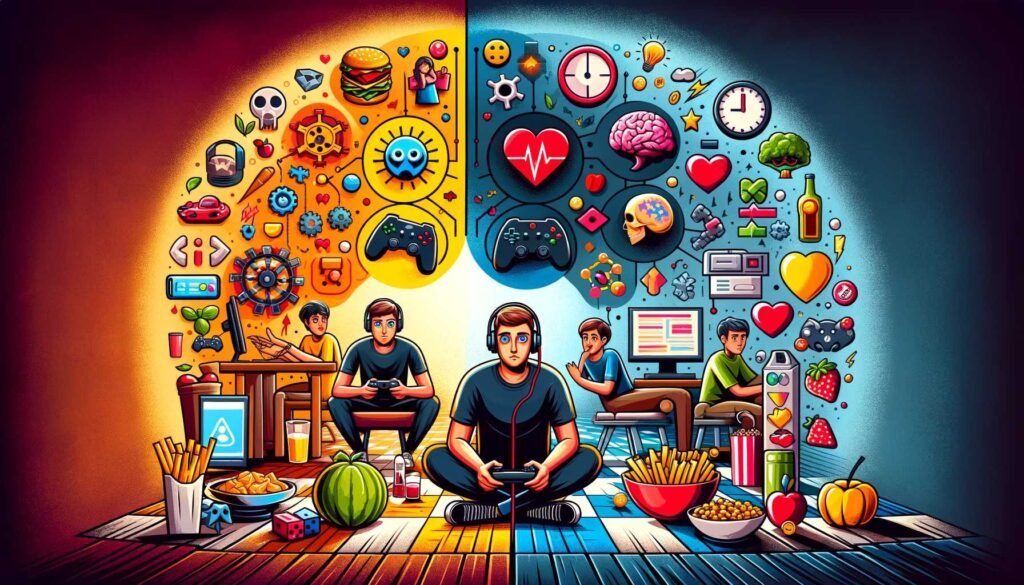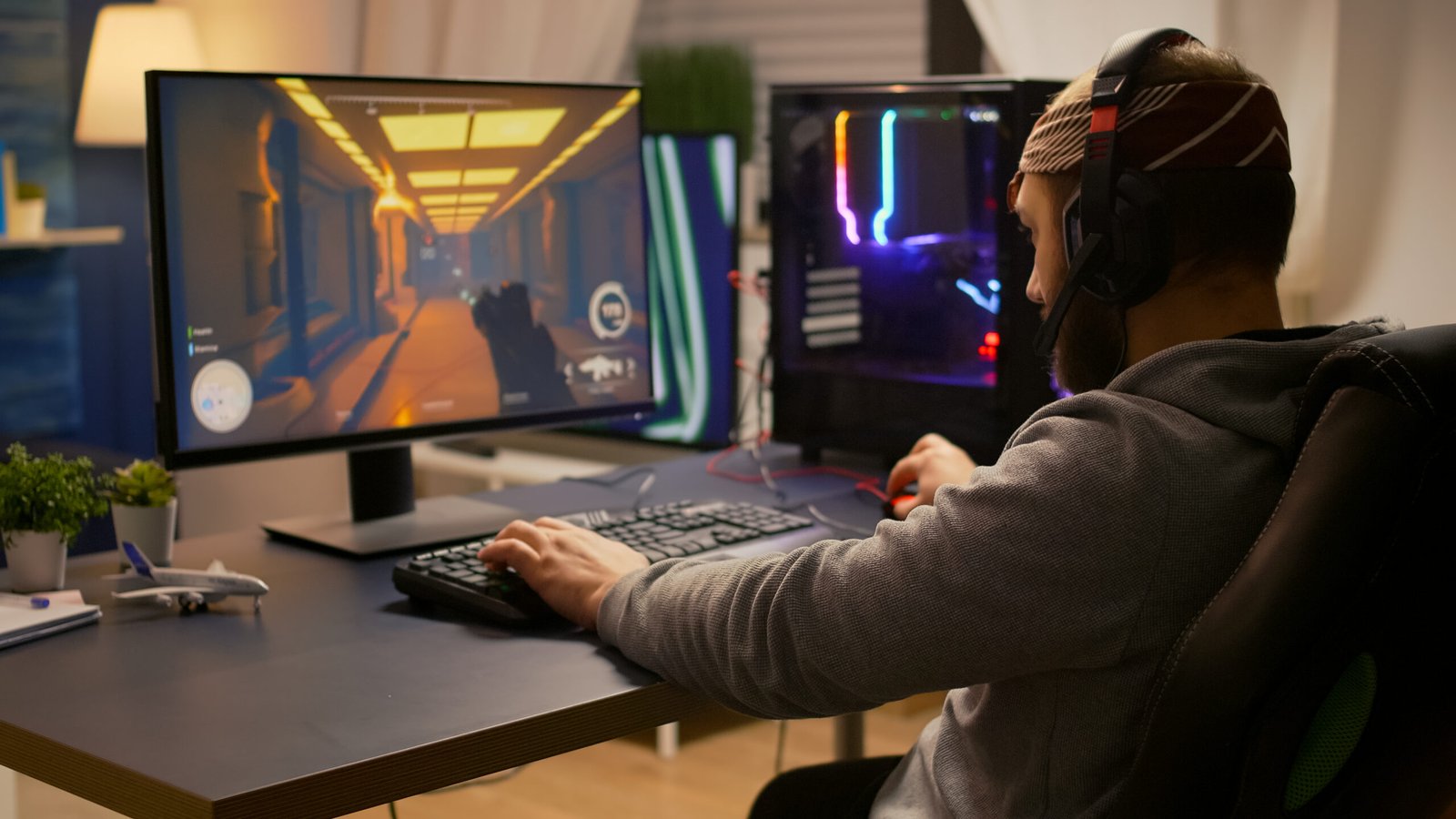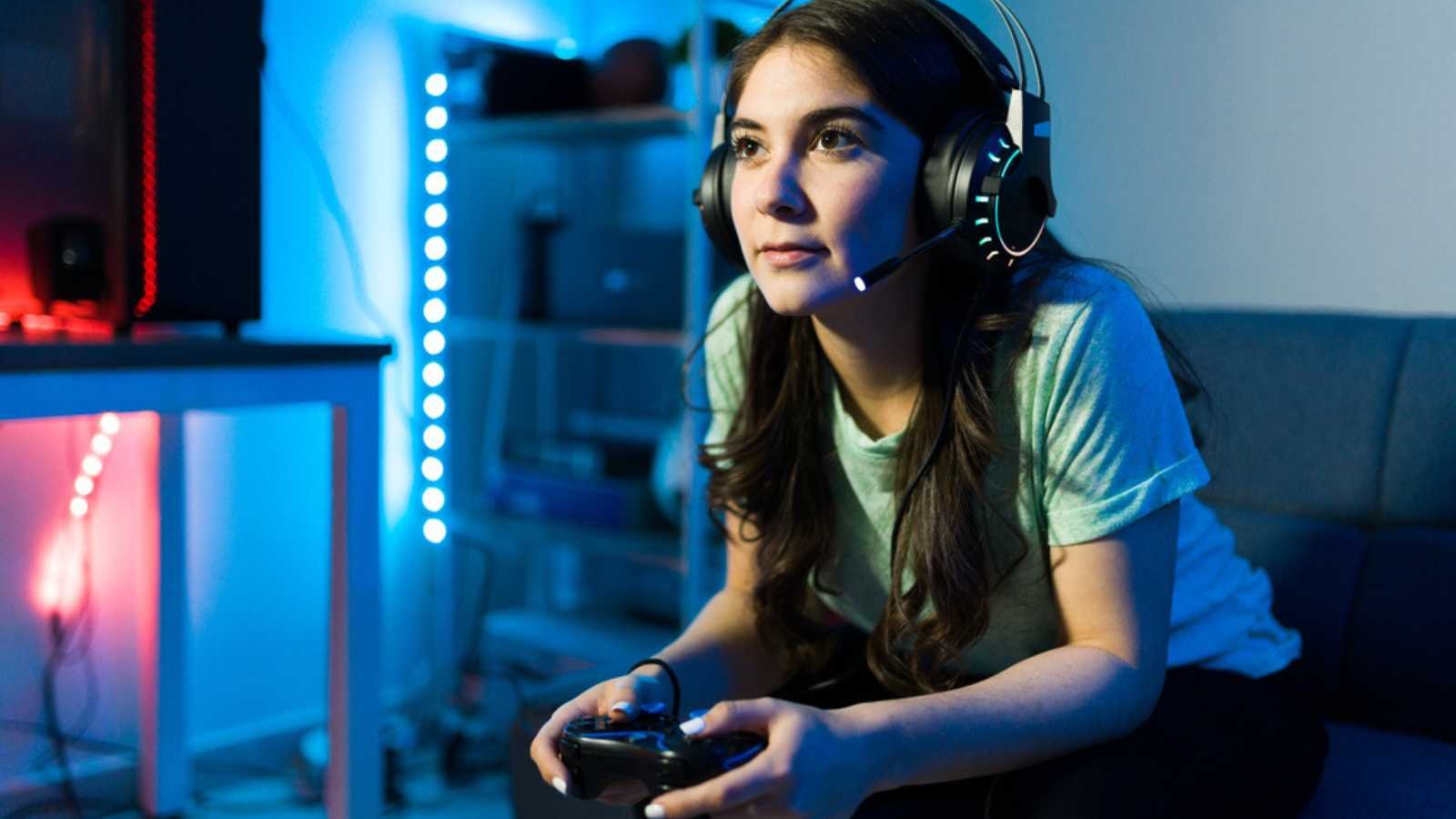In recent years, video games have evolved from being a form of entertainment to a tool that can influence mental well-being in significant ways. While many people enjoy gaming purely for fun, an increasing body of research suggests that video games can offer a range of mental health benefits. However, like anything, gaming can also have its risks. Here’s a closer look at how gaming can impact mental health, both positively and negatively.
The Benefits of Gaming for Mental Health
1. Stress Relief and Relaxation
One of the most immediate benefits of gaming is its ability to provide stress relief. Immersive video games offer players an escape from the pressures of everyday life. Engaging in a captivating virtual world can serve as a distraction from real-world stressors, allowing players to relax and reset.
- How It Helps: Games like Animal Crossing: New Horizons or Stardew Valley provide calm environments that encourage players to unwind, engage in slow-paced tasks, and focus on non-threatening objectives, offering a sense of peace.
- The Science Behind It: Studies suggest that playing games can lower levels of cortisol, a stress hormone, thereby helping to reduce anxiety and stress. The act of focusing on a game rather than worrying about external factors can help calm the mind.
2. Improved Mood and Emotional Regulation
Playing video games can improve mood and help with emotional regulation. Many games involve challenges that require players to overcome obstacles or solve complex puzzles. The sense of accomplishment and progression can lead to positive emotional outcomes.
- How It Helps: Games like Tetris Effect or Journey can evoke emotional responses, leading to feelings of satisfaction and happiness. Achieving goals in-game provides a boost to self-esteem, which can carry over into real-life situations.
- The Science Behind It: Video games can trigger the release of dopamine, the brain’s “feel-good” chemical. This helps to boost mood and improve overall emotional well-being, making gaming a natural mood enhancer for some individuals.

3. Cognitive and Social Benefits
Many video games can improve cognitive functions such as problem-solving, memory, and hand-eye coordination. Fast-paced games or those requiring quick reflexes, like Overwatch or Fortnite, also enhance reaction times and multitasking abilities.
- How It Helps: Strategy games like Civilization or StarCraft require players to think critically and plan, which can enhance executive functions and improve decision-making skills. Puzzle games like Portal stimulate creative thinking and problem-solving abilities.
- Social Interaction: Multiplayer games provide an opportunity for socialization, which can combat loneliness and social isolation. Playing with friends or online communities can foster relationships and provide a sense of belonging, which is crucial for mental health.
- The Science Behind It: Research shows that gaming can improve cognitive flexibility, working memory, and spatial awareness. Social gaming, on the other hand, provides players with a platform for social interaction, which can improve mental health by reducing feelings of loneliness and promoting a sense of community.
The Risks of Gaming for Mental Health
1. Addiction and Time Management Issues
While gaming can provide mental health benefits, it also has the potential to become addictive. Some individuals may find it difficult to balance gaming with other aspects of their life, leading to excessive screen time and neglect of personal, social, or work responsibilities.
- How It Affects Mental Health: Video game addiction can lead to feelings of guilt, anxiety, and depression, especially if a person is using gaming as an escape mechanism rather than a healthy coping tool.
- The Science Behind It: Studies show that excessive gaming, particularly for extended periods, can lead to issues with attention span, disrupt sleep patterns, and negatively affect mental health. The World Health Organization has even classified gaming disorder as a mental health condition in some cases.
2. Negative Emotional and Behavioral Effects
Gaming can sometimes lead to negative emotional effects, particularly in games that involve violence or high levels of competition. Extended exposure to these types of games has been linked to increased aggression, irritability, and difficulty managing emotions.
- How It Affects Mental Health: Games that involve violent content, such as Call of Duty or Grand Theft Auto, may desensitize players to aggression and encourage hostile behaviors. Prolonged exposure to these games may increase aggressive thoughts and actions.
- The Science Behind It: Research into violent video games has produced mixed results, but there is evidence to suggest that playing violent games in excess may contribute to heightened aggression and emotional disturbances in some players, particularly younger individuals.
3. Social Isolation and Dependency
For some, the immersive nature of video games can lead to social isolation. Excessive gaming may replace real-world interactions, leading to a diminished quality of life and relationships. The tendency to prioritize gaming over family, work, or other personal connections can lead to feelings of loneliness, especially if social interactions within the game become the primary source of connection.
- How It Affects Mental Health: Players who retreat into virtual worlds may become increasingly disconnected from the real world, leading to isolation, depression, and difficulty forming meaningful real-life relationships.
- The Science Behind It: Prolonged periods spent in front of a screen without adequate social interaction can have a detrimental effect on a person’s emotional health. Lack of face-to-face contact and support can amplify feelings of loneliness and depression.
Balancing the Benefits and Risks
To enjoy the mental health benefits of gaming while avoiding its potential downsides, it’s essential to establish healthy gaming habits. Here are some tips to maintain balance:
- Set Time Limits: Avoid excessive gaming by setting daily or weekly time limits. Try to balance gaming with other activities such as exercise, work, or socializing.
- Choose Games Wisely: Opt for games that promote relaxation, cognitive engagement, or social interaction. Games that focus on storytelling, puzzle-solving, or team collaboration can have positive impacts.
- Monitor Emotional Responses: Be mindful of how a game makes you feel. If it causes frustration, anger, or sadness, consider taking a break or switching to a different type of game.
- Encourage Social Play: Multiplayer or co-op games can foster positive social connections, so try to engage with friends or communities to enhance the social aspect of gaming.
Conclusion
Gaming, when used responsibly, can offer numerous mental health benefits, from stress relief and mood enhancement to cognitive improvement and social connection. However, it’s important to be aware of the potential risks, including addiction, negative emotional effects, and social isolation. By maintaining balance and choosing games that foster healthy engagement, you can harness the positive aspects of gaming while mitigating its possible downsides. Whether for relaxation, cognitive enhancement, or social interaction, gaming can be a valuable tool in promoting mental health—if enjoyed in moderation.











